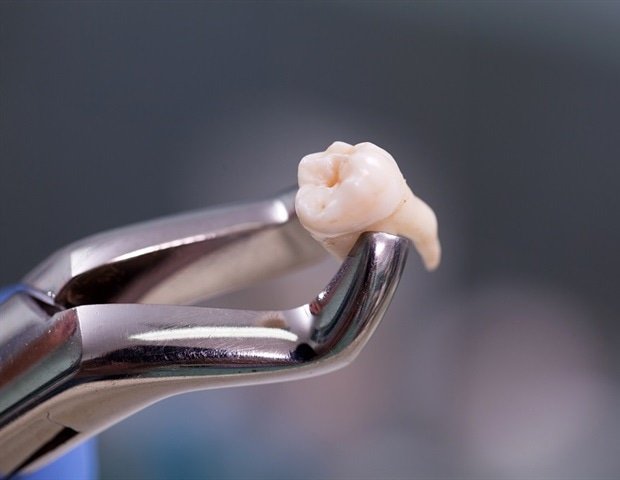Over-the-counter pain relievers work as well or better than opioids after wisdom tooth extractions for both men and women, according to a Rutgers Health follow-up in a landmark paper on comparative pain relief.
This first paper on the collective experience of more than 1,800 trial patients found that the combination of ibuprofen and acetaminophen provided better pain relief than hydrocodone with acetaminophen for the first two days after surgery and greater satisfaction in the postoperative period. The analysis of the new subgroup, published in JAMA Network Opendemonstrated that the results were maintained for both male and female patients.
We wanted to determine whether the effects of pain medication were consistent in men and women separately. And what we found is that in both subgroups (men and women), the non-opioid was superior for that first day and night, and then no worse than the opioid for the rest of the period after surgery.”
Janine Fredericks Younger, associate professor at Rutgers School of Dental Medicine and lead author of the analysis
The trial that produced both papers, with $11 million in funding from the National Institutes of Health, compared patients who received 400 milligrams of ibuprofen (Advil, Motrin) combined with 500 milligrams of acetaminophen (Tylenol) versus those who received 5 milligrams of hydrocodone with acetaminophen.
The gender analysis was particularly important because women consistently report higher levels of pain after surgery, raising questions about whether pain medications work differently for each gender.
“There are obviously different biological mechanisms, different hormones involved,” said Cecile Feldman, dean of Rutgers School of Dentistry and senior author of both studies. “But the results confirm that the analgesic effect for both groups is the same.”
The researchers purposefully enrolled equal numbers of men and women from the outset, allowing them to conduct robust subgroup analyses. Patients at five universities tracked their pain twice a day for nine days using electronic diaries, assessing not only pain but also sleep quality, ability to perform daily activities and overall satisfaction.
By every measure, the over-the-counter combination matched or beat the opioid. Patients who received the non-opioid drugs reported better sleep quality and less interference with daily activities. Those given opioids were twice as likely to call back asking for additional pain medication.
“The results actually came out even stronger than we thought,” Feldman said. “We expected to find non-inferior, so at least not worse than opioids. We were surprised to find that it was actually superior.”
Dental procedures are a common point of entry for opioid exposure. Dentists wrote more than 8.9 million opioid prescriptions in 2022, ranking among the top prescription drugs in the country.
“There are studies out there that show that when young people are introduced to opioids, as many are through the extraction of wisdom teeth, there is an increased likelihood that they will eventually use them again, and then it can lead to addiction,” said Fredericks Younger, noting that opioid overdoses kill more than 80,000 Americans annually.
The research focused on extracting the affected wisdom teeth, which requires cutting into the gums and sometimes removing bone, making it one of the most painful dental procedures. The Food and Drug Administration uses it as a standard model for testing pain medications because it reliably causes moderate to severe pain for about 48 hours.
Feldman said the results, which show the superiority of over-the-counter medication over opioids, likely apply to other dental procedures, but cannot automatically be generalized to surgeries elsewhere in the body. He would like to see similar studies conducted for a range of procedures, particularly those for orthopedic injuries, which often result in opioid prescriptions for high school and college athletes.
Despite mounting evidence, many dentists continue to write “just in case” opioid prescriptions for patients they are told to start on over-the-counter medications. The next phase of research will examine why these prescribing patterns persist.
“How can we now, with the evidence and knowledge we have, eliminate these prescriptions from being written?” said Fredericks Younger.
The findings are in line with the American Dental Association’s recommendations to avoid opioids as first-line pain treatment. Feldman said the study’s results leave little room for doubt.
“We feel pretty confident in saying that opioids should not be routinely prescribed for dental procedures,” he said. “Our opioid-free combination should really be the analgesic of choice.”
